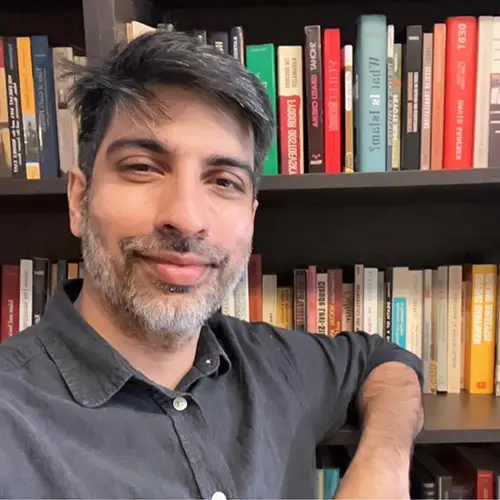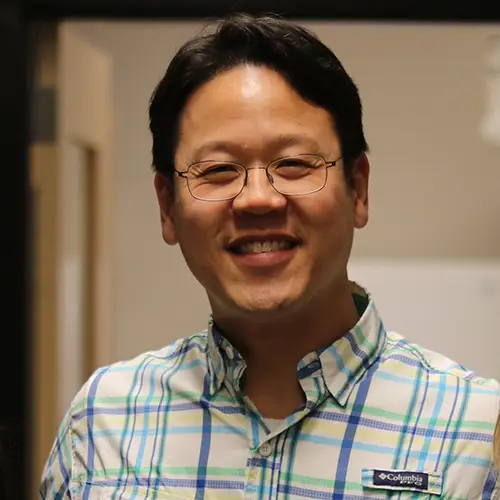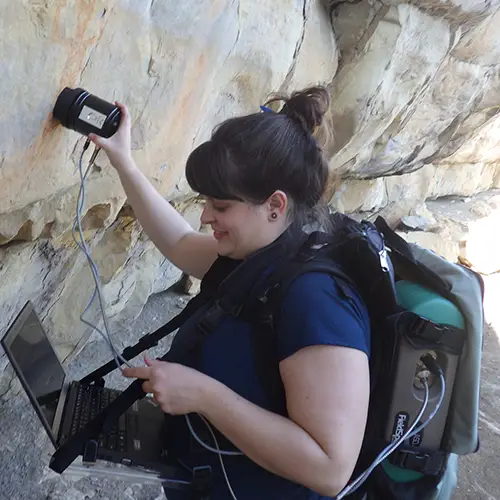Welcome New Faculty

Arsalan Khan has joined the department as Associate Professor after previously teaching at Union College in Schenectady, NY. His research is situated at the intersection of semiotics, ritual, gender, and ethics, themes that he has explored in the context of the Islamic revival in Pakistan. Through an examination of the transnational Islamic piety movement the Tablighi Jamaat in Pakistan, he explores the broader relationship between Islam, secularism, and modernity. Khan’s research shows how a distinct form of hierarchical pious relationality, crafted in ritual, structures the Tablighi congregation and how it becomes the ground upon which Tablighis transform domestic and public life and create an Islamic moral order. His book manuscript, The Promise of Piety: Islam and the Politics of Moral Order in Pakistan is newly published by Cornell University Press.
Khan has returned to Karachi during spring semester to explore the creation of citizenship and belonging. For his next book project, Islam, Citizenship and Moral Responsibility in Karachi’s Climate Crisis, he is examining how various social groups materialize moral claims to citizenship and belonging through public performance and patronage by drawing on democratic, legal, and Islamic values. He will then document how provincial officials and bureaucrats respond to such claims. More broadly, Khan’s project explores the constitution of democratic and religious citizenship in Pakistan in the context of the climate emergency.

Yangseung Jeong is a biological anthropologist who specializes in forensic anthropology. He has been a fellow of the Oak Ridge Institute for Science Education at the Central Identification Laboratory of the Defense POW/MIA Accounting Agency (DPPA), and a professor at Middle Tennessee State University, before joining our department as assistant professor in 2024. He currently serves as an external consultant for the Korean National Policy Agency and contributes to the editorial board of Anatomy & Biological Anthropology.
Jeong’s research focuses on developing and validating population-specific methods for biological profile reconstruction, and on understanding the interactions between human body decomposition and the surrounding environment. He has established the Korean CT Scan Database with 1,500-plus whole-body CT scans and the Forensically Important Fly (FIF) Collection comprising 3,000-plus blowflies from the Anthropology Research Facility (ARF). The American Academy of Forensic Sciences has recognized his recent project on a digital pair-matching technique using CT scans, earning him the prestigious Ellis R. Kerley Research Award in 2022. Pair-matching is a method used to identify individuals in contexts such as mass graves or resulting from mass tragedies, in which human skeletal remains have been comingled. Currently, he collaborates with the DPPA to develop a pair-matching method specific to their agency. He aims to broaden his research scope at UT through collaborations with colleagues and graduate students, offering diverse research opportunities to interested students.

Sierra Bow, a new lecturer in the department, is an anthropological archaeologist who integrates techniques and approaches from the physical, chemical, and earth sciences to address archaeological questions and problems. Her primary research delves into pre-contact cultures within the Southeastern United States, utilizing innovative, non-destructive techniques to understand the material properties of ceramics and rock art pigments. In addition to teaching the introductory course in archaeology, Bow teaches a variety of archaeology classes including southeastern archaeology, experimental archaeology, ceramics, and world rock art. She oversees the analytical archaeology laboratory, equipped with a portable X-ray fluorescent spectrometer (PXRF) and fiber-optic reflectance spectrometer (FORS), where she guides both undergraduate and graduate students Beyond academia, Bow is engaged in public outreach to foster a greater understanding of archaeology among diverse audiences.